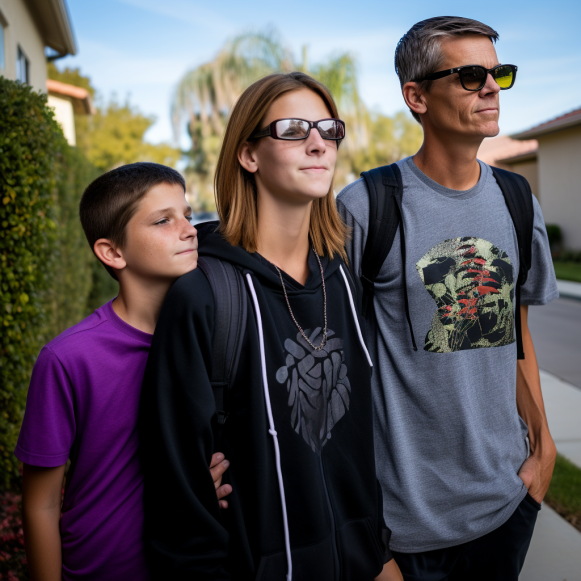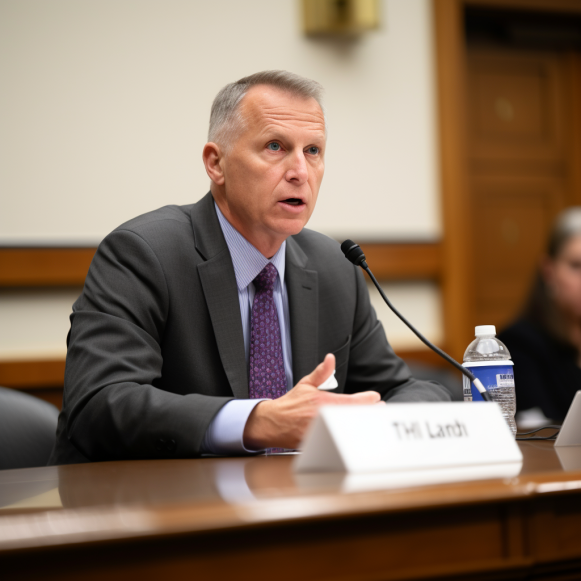Crohn’s disease and colitis: Advocates strive to raise awareness, break stigma for ‘invisible’ illnesses

Michelle Harvey of Vista planned to return home the next day after packing an overnight bag for her son’s testing at Rady Children’s Hospital in June 2020. Mason Harvey was instead hospitalized for two months while being diagnosed and treated for Crohn’s disease, an inflammatory bowel disease characterized by chronic inflammation in the digestive system.
Mason had low hemoglobin levels prior to his hospitalization, according to a blood test. Hemoglobin is a protein found in red blood cells that transports oxygen throughout the body. He weighed around 45 pounds, which is significantly less than the 60 to 120 pounds that is typical for an 11-year-old boy.
Mason was diagnosed nine days into his hospital stay, but doctors wanted to make sure he was in stable condition before releasing him. During his four-week stay, he was on “gut rest,” which meant he couldn’t eat solid foods.
“It was pretty difficult because I like snacks and stuff, especially when I’m going through hard times,” Mason, now 14, said. “I was getting shots and things, but I couldn’t eat anything; I couldn’t even drink water.”
Crohn’s disease is an inflammatory bowel disease that affects approximately 500,000 people in the United States, according to the National Institutes of Health. According to the Centers for Disease Control and Prevention, 1.3 percent of American adults — approximately 3 million people — have inflammatory bowel disease, which means they have Crohn’s disease or ulcerative colitis.
“It’s really an isolating disease, and it’s a silent disease because you can’t tell if someone has Crohn’s or colitis just by looking at them,” she told me.
While both conditions are chronic, Crohn’s disease, according to the Crohn’s and Colitis Foundation, most commonly affects the small intestine and the beginning of the colon. Ulcerative colitis, on the other hand, only affects the rectum and the colon’s innermost lining, also known as the large intestine.
Because there is no single diagnostic test for inflammatory bowel disease, many patients go undiagnosed, misdiagnosed, or untreated for years. According to a 2014 study published in the journal United European Gastroenterology, approximately 10% of inflammatory bowel disease patients are misdiagnosed with irritable bowel syndrome, and approximately 3% wait at least five years before receiving the correct diagnosis.
Inflammatory bowel disease can affect various parts of the digestive system in different ways, but some common symptoms include diarrhea, nausea, rectal bleeding, weight loss, and mild to severe abdominal pain or cramps after eating.
Although some symptoms of inflammatory bowel disease are similar to those of irritable bowel syndrome, such as abdominal pain and nausea, there are some significant differences. IBS, unlike colitis or Crohn’s disease, does not cause inflammation, is rarely hospitalized or requires surgery, and does not increase the risk of colon cancer.
Inflammatory bowel disease can cause a person’s lifestyle to change drastically, especially if they are experiencing a flare-up of symptoms.
Because of the urgency, “many patients know where every bathroom is anywhere they travel, any route they take,” said Cindie Barbera, the chapter’s deputy executive director.
Inflammatory bowel disease treatment
Although there is no cure for inflammatory bowel disease, it is possible to achieve remission by following a treatment plan that reduces inflammation. This plan may include taking various medications, avoiding trigger foods, and eating foods high in healthy fats and insoluble fiber.
In some cases, surgery is required to treat inflammatory bowel disease, as was the case for former San Diego Chargers kicker Rolf Benirschke.
When Benirschke was 23 years old and in his second season of professional football, he thought he had caught the flu from some of his teammates when his first symptoms of Crohn’s disease appeared. When his symptoms persisted long after his teammates had recovered, his father, a physician, referred him to a gastroenterology specialist at UC San Diego.
Benirschke said he “continued to play and manage my illness as best I could, but there were not a lot of medical options” when he was diagnosed with Crohn’s disease.
Despite taking two medications to control his symptoms, he began to lose weight — about 20 pounds — and suffered from a severe stomachache with bloody diarrhea throughout the season. After Sunday games, he was brought to the hospital to be fed intravenously for the rest of the week, then released on Saturdays to play with the team.
“If you look statistically at the 10 years that I played, it was really one of the better seasons of my career, but there could have been a footnote that said, ‘Young kicker is dying,'” he said.
During the off-season, he altered his diet and tried every treatment imaginable, including acupuncture and biofeedback, an alternative medicine approach that teaches people to be more aware and in control of their bodily functions.
Benirschke fainted on the plane on the way home from New England a few games into his third season. He was taken to the hospital after landing for a series of surgeries to remove his large intestine and install two ostomy bags.
Benirschke thought his career was over, but one of the Chargers’ coaches worked with him while he was recovering. He returned to the Chargers the following year, winning the NFL Man of the Year award in 1983 and playing until his retirement in 1987.
Although the disease has had an impact on him in many ways, Benirschke believes it has also given his life meaning. For decades, he has been an advocate for raising awareness about inflammatory bowel diseases and has counseled other patients, including Mason.
“I get the perspective now, looking back, and that illness changed my life,” he told me. “Everything about me changed — who I am, what was important to me — it gave me a purpose, and ultimately, God turned it into just the richest life I could possibly have imagined.”
How can caregivers help loved ones with IBD?
Caring for a loved one suffering from colitis or Crohn’s disease necessitates not only patience and understanding, but also a deep well of empathy and knowledge in order to navigate the challenges of the care recipient’s complex condition.
The Crohn’s and Colitis Foundation provides educational resources, hosts support group meetings, and raises funds for research into treatment options for patients and caregivers. Camp Oasis, a weeklong summer camp for children with medically stable Crohn’s disease or ulcerative colitis, is also offered by the organization.
When their son was first diagnosed with the disease, Michelle and Jason Harvey said connecting with the organization was critical to understanding the disease.
“In the very beginning it was tough, but I think reaching out and looking for support and talking about it helped,” she said.
Some patient and caregiver teams, such as Mason and his parents, find that keeping a meal journal helps them track which foods cause a flare-up of symptoms.
Mason’s parents now weigh him every day in order to catch any sudden drops. They make him a supplemental drink three times a day out of lactose-free milk and Carnation Instant Breakfast to ensure he gets enough vitamins and nutrients. Biologics, which help the immune system target inflammation-causing proteins, are given to him twice a month.
Michelle and Jason alternated between staying in Mason’s room and sleeping in their car in the parking lot during his two-month hospitalization because pandemic protocols required only one parent to be present at a time. Mason began drawing all of the foods he looked forward to snacking on because he was unable to eat for a full month during that time.
Mason and Michelle co-wrote “Not Your Average Slice of Pizza,” a children’s book about Crohn’s disease that they hope will help other children, based on their drawings.
“You’re not alone with this disease, there’s a lot of other people out there and it’s different for everyone,” said Mason. “Someday you’re going to get into remission and everything’s gonna be fine.





